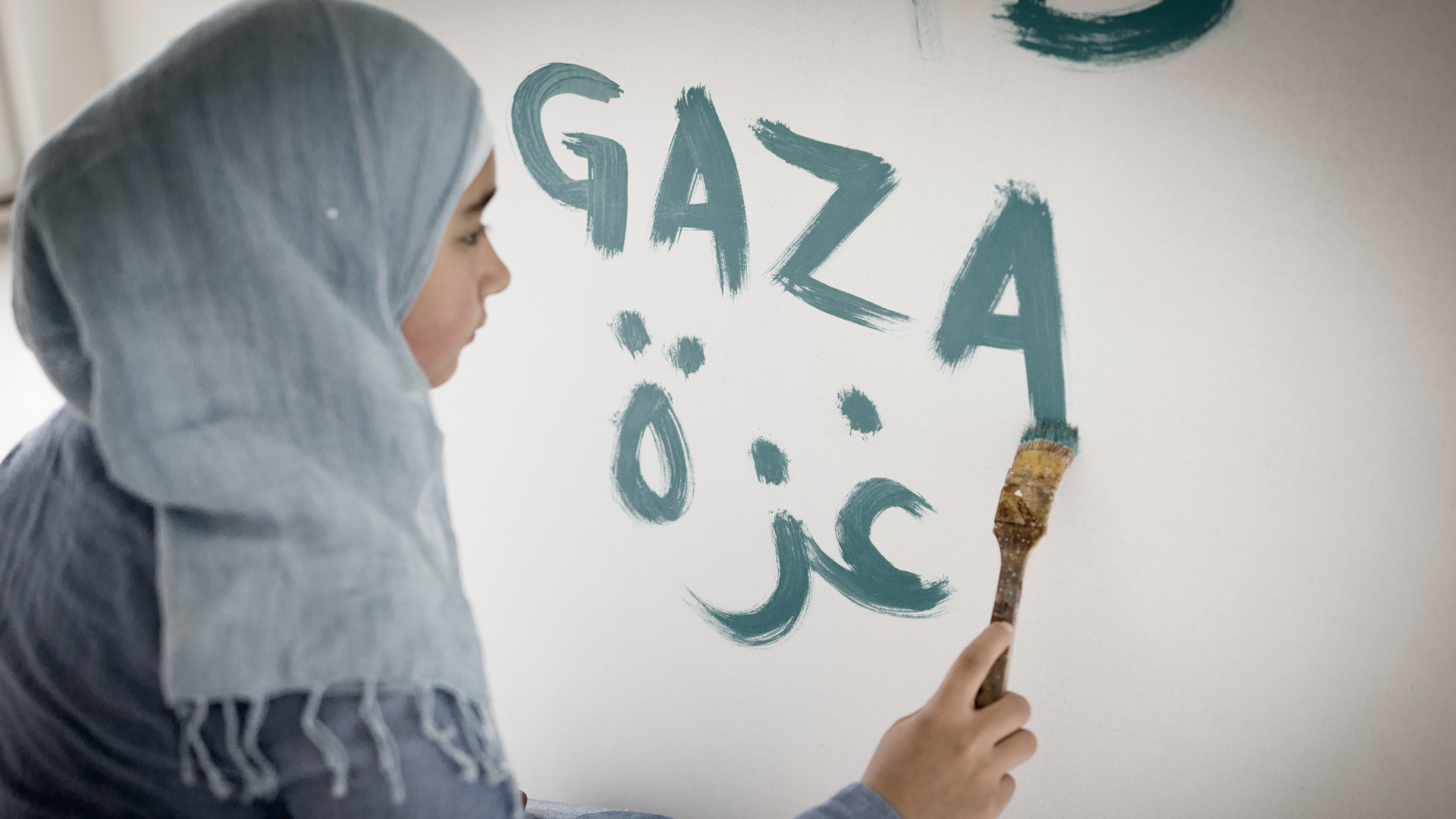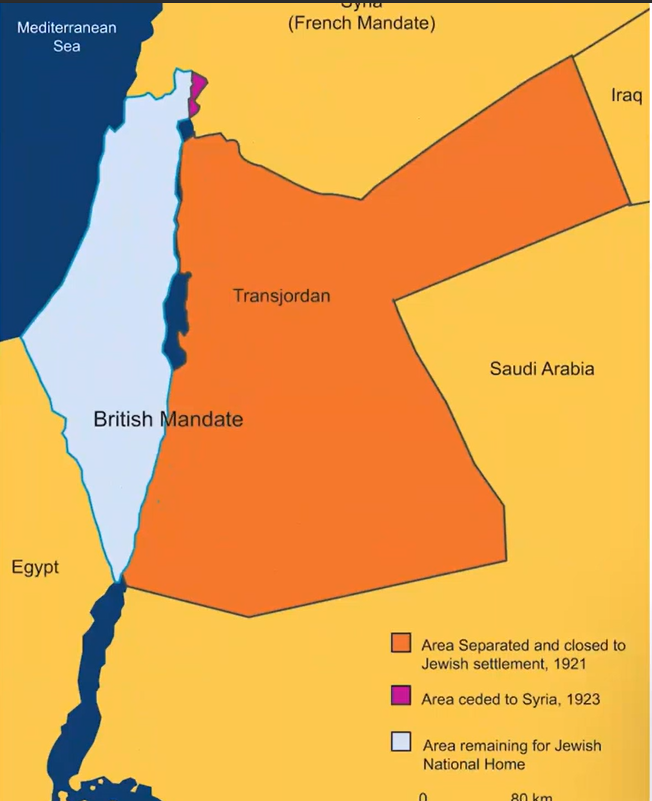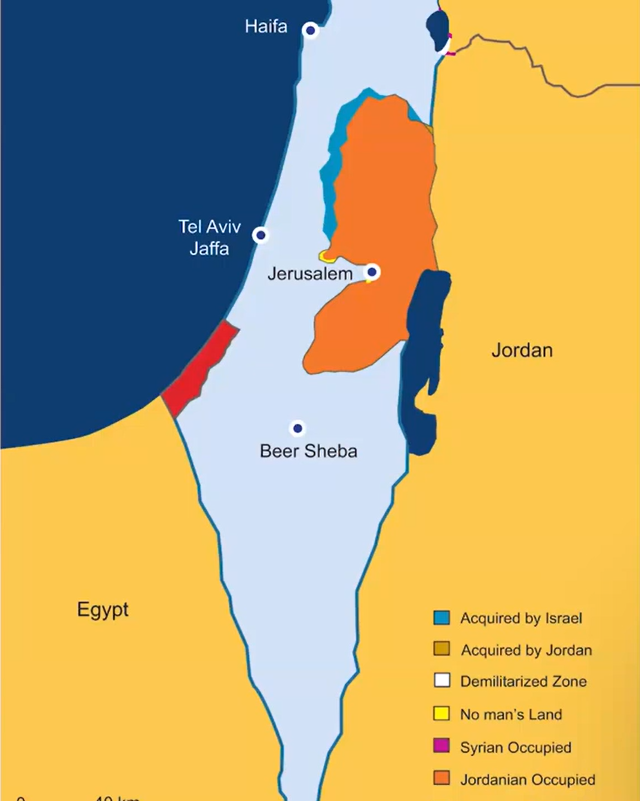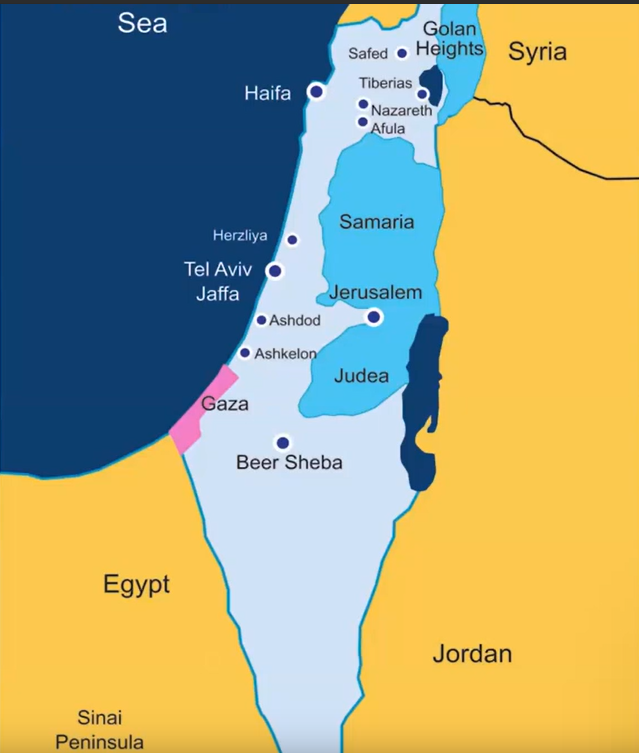
The Israel-Palestine conflict emerges as a battlefield of opposing narratives, clouding the truth and casting doubt on either side. Aspen Initiative Africa hosted a webinar to unravel the complexities of the region’s history and current challenges.
To discern between fact and fiction surrounding the Middle East crisis, pore over the conversation moderated by Mucai Kunyiha where panelists Asaad Joubran and Yaniv Gelnik, explore one of the most significant geopolitical issues of our time.
Mucai Kunyiha:
Welcome to the last Aspen Initiative webinar of 2023. Let me start by acknowledging the sensitivities around the Israel-Palestine conflict and strongly held views by many of us on the issue. Today’s invitation is to take a step back from judgement and conclusion and take the posture of curiosity and investigation. To achieve this, we must be ready to listen to perspectives that might make us uncomfortable, even those with which we strongly disagree. Our hope today is not to get to an agreement, or a solution (although we pray for one every day), but to develop our understanding. Sticking with the human story, I’d like to ask the panellist to tell us a little about their personal history and journey: Yaniv how far back can you trace your family history?
Yaniv Gelnik:
My mother, a Canadian Jew, relocated to Israel when her father, facing antisemitism, struggled to find employment. In an attempt to mitigate discrimination, my maternal grandfather attempted to change his name to something less distinctly Jewish, but this proved unsuccessful. My father, an American Jew, faced challenges in the US while advocating for the emigration of Soviet Jews from the Soviet Union. As a result, he relocated to Israel in the 1970s. My family sought refuge in Israel because it was a place where Jews could feel safe. We were raised there until I started military service and went to the US for college.
Mucai Kunyiha:
How has this conflict affected you through the years and even now?
Yaniv Gelnik:
Well, it’s complicated.
Growing up, there was a time when buses were frequently targeted, leading to explosions. Naturally, serving in the military as an intelligence officer and gaining insights into the inner workings of the system proved to be a fascinating experience. I consider myself an extreme left-wing activist, advocating for a two-state solution that allows people to exercise their right to self-determination.
On the initial day of the October 7 attack, I mourned the loss of two cousins who were ardent left-wing, pro-Arab activists. Their commitment was such that they resided on the Gaza border with their parents and their children to actively generate employment opportunities on their farms. Previously, they lived in the Sinai Peninsula where they had moved to for the same purpose. These were people who had devoted their lives to the pursuit of peace and tragically fell victim to a massacre in their homes on October 7th by Hamas. So yeah, it has affected me in a variety of ways.
Mucai Kunyiha:
Our condolences to you and your family Yaniv. Asaad, what is your history in Israel?
Asaad Joubran
I am of Palestinian descent but hold Israeli citizenship. I belong to the 20% of the population of Israel (about 20 Million people) who are of Palestinian origin. They stayed over in the country and eventually became citizens. My paternal grandfather lived in the Jewish – Arab city of Haifa until the Arab-Israel War in 1948 which resulted in the State of Israel. After the war, residents fled to Lebanon as refugees. My grandfather because he had Jewish friends working in the British court of Haifa, crossed over into Israel, leaving my months-old father, grandmother and her family in Lebanon.
There was no border at the time, he managed to come back and be a citizen of Israel. Nonetheless, the process of bringing his family back to Haifa took six years. My family had been in the country for over 15 generations and just like them I too now reside in Haifa. I play a proactive role in nurturing connections between Arabs and Jews in the city. I serve as the chairman of a bilingual school, a unique concept in Israel, we are working towards cultivating hope for a better future.
Mucai Kunyiha
What is your personal experience growing up in Israel and the conflict that has ensued?
Asaad Joubran
For me, it’s particularly difficult since I am Palestinian with some of my family residing in the West Bank. But growing up as a minority in this area taught me that things are not black and white. It’s not a matter of labelling one side as the bad guys and the other as the good guys. It’s more intricate than that.
Every conflict in this region is consistently challenging, but we’ve found ways to navigate through it. Unfortunately this time the magnitude of the conflict caught us off guard. For the first time, we’re experiencing solidarity in Israel between Jews and Arabs regarding the recent events. Some of the individuals kidnapped and killed by Hamas were Israeli Palestinians. There is some kind of shared destiny which provides a glimmer of hope.
Mucai Kunyiha:
We wanted to start by setting the context of the history of this region. Throughout history, various entities, from Romans to Ottomans, have sought to be a part of it. Let’s begin with the more recent history, around the time of the First World War, and trace how we arrived at the current borders.
Yaniv Gelnik:
People often use maps to demonstrate and assert certain rights. Like “Oh here’s a map of where we used to live therefore we are justified.” There is always a debate on how far back we should go. Asaad and I are not looking to use these maps in this way but to tell a narrative of what happened. I don’t approach this conversation with the opinion that I have rights to this land based on the fact that people who may or may not have been related to me lived there three thousand years ago. I believe that the rights I have to the land are no different from the rights that Asaad or anyone else who has lived there for a generation or two possesses.
Asaad Joubran:
While monotheistic religions designate this region as the Holy Land, its history has seen the rule of Persians, Greeks, Muslims, and even European crusaders. It was only with the establishment of the State of Israel that control returned to the local population. Today, we will explore the history of the region from the early 20th century during the Ottoman Period. The region encompassing present-day Israel and Palestine was part of a larger entity known as Syria, and distinct nationalities were not prominent at that time. Originating in Turkey, the Ottomans governed a significant portion of the Middle East and parts of Europe for four centuries.

During the First World War, the Ottoman Empire aligned itself with the Germans and Italians, opposing the British, French, and Russians. This war marked the conclusion of Ottoman control over the Middle East. To break the empire forces and win the war, Britain made contradictory promises to 3 parties:
Arab Independence: Hussein bin Ali, Sharif and Emir of Mecca and British High Commissioner in Egypt Sir Henry McMahon in a series of 10 letters explored the terms of an Anglo-Arab alliance. The Hussein-McMahon Correspondence mapped out the areas that Britain committed to handing over to the Arabs after the war.
Division of the Fertile Crescent: According to the Sykes-Picot Agreement the French would take up the north (Lebanon, Syria and northern Iraq) and the British would take the south (Present-day Israel, Palestine, Jordan and southern Iraq).
A Jewish Homeland: The Balfour Declaration in which Britain pledged to establish a national home for the Jewish people in Palestine. After the dissolution of the Ottoman Empire, this declaration was included in the terms of the British Mandate for Palestine.

After the collapse of the Ottoman Empire, the League of Nations established a British Mandate for Palestine. Borders were defined, and Great Britain assumed control until the end of 1947. Jews began returning to Israel, seeking refuge from antisemitism, and established settlements amid opposition from Arab Nationalist movements. This led to conflicts and revolts between the Arab and Jewish populations.
The British would try to find a solution for both parties to peacefully coexist by establishing the Peel Commission. Through testimonies from Jews and Arabs, the commission investigated the causes of the unrest. The commission proposed a two-state solution, introducing new borders that outlined which territories would be occupied by each party.


When the outcome of the Peel Committee came to the League of Nations for approval, the Jewish leadership accepted the partition plan. Arab representatives opposed it. The Arab armies in and around Palestine, including Syria, Egypt, Lebanon, and Iraq, attacked Israel in 1947 when Israel declared independence based on the proposed plan. The Nakba or War of Independence resulted in Israel gaining control of the land, causing the displacement of 750,000 Palestinians.
Yaniv Gelnik:
A persistent issue throughout history, up to the present day, is determining “Who truly represents and makes decisions on behalf of the Palestinians?” At that time, the Jews were organized under leadership capable of speaking on their behalf. In contrast, the Palestinians lacked a formal election process and were primarily represented by leaders from other countries, introducing additional interests into the situation.
When the proposal was turned down by the representatives of the Palestinian people, the expectation was that the newly established Jewish nation would be unable to defend itself against the military strength of these other countries. Rather than settle for a compromise, the 7 other Arab countries planned to launch an attack to seize control of Israel.
There are different accounts regarding what happened next. Some people knew that the war was imminent and chose to leave their homes. Others were forcibly displaced during the war, while some fled with the hope of returning shortly after the conflict. What we can all acknowledge is the mass movement of people to Gaza, Lebanon, Syria, and Jordan, where they continue to live in refugee camps under deplorable conditions, spanning 3 generations.
Asaad Joubran:
Fast forward to 1967. Israel engaged in a 6-Day war against Jordan, Egypt and Syria. By seizing the territories of Gaza and Sinai from Egypt, the West Bank from Jordan and the Golan Heights from Syria, the map was once again transformed. Once Israel started occupying these territories, the West Bank and Gaza fell under the control of the Israeli military.

Yaniv Gelnik:
The 6 Day War came as a result of disputes between Israel and Egypt. Israel had spoken to the UN and published a letter outlining 3 conditions that they were concerned might occur. Israel had communicated with the UN and issued a letter detailing three conditions that raised their concerns. If any of those conditions were violated, Israel would have had no option but to initiate a war:
- There would be no presence of Egyptian military forces in the demilitarized Sinai Peninsula.
- The Suez Canal would stay open to Israeli ships for uninterrupted trade
- The Straits of Tiran would similarly remain accessible for Israeli ships, allowing them to reach their southern port city of Elat
- There would be no presence of Egyptian military forces in the demilitarized Sinai Peninsula.
- The Suez Canal would stay open to Israeli ships for uninterrupted trade
- The Straits of Tiran would similarly remain accessible for Israeli ships, allowing them to reach their southern port city of Elat
In the days that followed, all three of those conditions were breached. Egyptian forces entered the Sinai Peninsula, the Suez Canal was shut, and the Straits of Tiran closed to Israeli ships. Israel responded by attacking Sinai, pushing Egyptian forces past the Suez Canal. On the third day, the Jordanians launched an attack, prompting Israeli forces to defend themselves in Jerusalem. Consequently, Israel took control of the West Bank.
On the fifth day, the Syrians launched an attack from the Golan Heights. While defending itself against the Syrian forces, Israel acquired additional territory. Although Israel had no initial claim over the Golan Heights, they secured it strategically to gain an advantage in potential future attacks. This is how Israel became an occupying force in the region. Before this violation Israel was satisfied with the borders agreed upon after the War of Independence.
Asaad Joubran:
Israel had established itself as a big force in the Middle East and an ally of the US. But a coordinated surprise attack broke out on October 6 1973, that left the nation feeling threatened for the first time. Egypt and Syria were determined to regain the territory seized in the 6-Day War.
The Yom Kippur war waged by the Syrian and Egyptian armies culminated in the first treaty between an Arab (Egypt) and Jewish country in 1979. Israel withdrew from the Sinai Peninsula. The West Bank and Gaza became occupied territories under international law, with the Israel Army deployed to govern the local population. Israelis then began establishing settlements both in public and private Palestinian areas.

With the land under military control, the people in the West Bank and Gaza Strip grew hopeless, prompting the first intifada uprising. It was marked with violence and Israel realised that it was not sustainable to maintain control over these areas for a long time.
Israeli Prime Minister Yitzhak Rabin recognised that peace was the only solution to this conflict. He signed an agreement with the Palestine Liberation Organization (PLO) and Yasser Arafat which would be known as the Oslo Accords. It was an interim agreement in which Palestinians were granted some kind of autonomy in Gaza and some parts of the West Bank. The agreement was meant to last for 18 months.

Yaniv Gelnik:
This was the first attempt to make a Palestinian State. At that time, Yasser Arafat was considered a terrorist from the Israeli perspective, involved in activities such as blowing up planes and orchestrating attacks targeting civilians. Therefore, his handshake with Rabin was seen as a significant moment in history. The agreement was phased, and a Palestinian Authority was established to oversee effective governance in the designated areas. Gradually, Israel would withdraw from regions where Palestinians assumed control over infrastructure and administrative governance.

From a Palestinian perspective, Jewish residents would become minority citizens in a Palestinian state. However, the Jewish settlers had a different viewpoint, aiming to maintain a presence and potentially complicating the transition process. These were messianic, right-wing Jews who believed they had a God-given right to the entire land.
Hamas, on the other hand, rejects a two-state solution, asserting that it would infringe upon the right of Palestinian refugees to return to their historic lands seized in 1948. In the areas controlled by Israel both administratively and in terms of security, the continuous construction of settlements made it increasingly challenging for Israel to entirely withdraw from the region.
Asaad Joubran:
Palestinian and Israeli moderates believed the conflict was going to end and they would finally live peacefully. After this agreement, many foreign companies that had been boycotting Israel ceased their boycott, signalling a potential shift in international relations. But despite the moderates on both sides, there were also extremists on both the Israel and Palestinian sides which eventually sabotaged the peace process, bringing us to the conflict we experience today.
Following the Oslo Accords, Hamas initiated terrorist attacks targeting civilians in Israel. On the Israeli side, Yitzhak Rabin was assassinated by a right-wing extreme Jew who believed the Oslo Accords were catastrophic for Jews and the settlements on the West Bank.
Mucai Kunyiha:
We can now start to see what the complications are. So many things have happened in the last 100 years in the region. But one of the things you alluded to is that there are factions within these broader groupings. So maybe you could tell us who these players are and what is happening internally among these players.
Yaniv Gelnik:
Those engaging in discussions about Israelis versus Palestinians or aligning themselves as either pro-Israeli or pro-Palestinian should understand that such distinctions oversimplify a complex situation. On the Palestinian side, you originally had Yasser Arafat, leader of the Palestine Liberation Organization (PLO). After the 6-Day War, the PLO was based in Jordan, launching attacks against Israel. This created tensions with King Hussein who believed the Palestinians were trying to take over Jordan.
He massacred hundreds of Palestinians and expelled the PLO from Jordan in what would come to be known as Black September. The PLO moved to Lebanon where they fuelled civil war. Israel invaded Lebanon, forcing Arafat and the PLO to flee to Tunisia. Years later, the PLO signed the Oslo Accords. When Arafat died, Mahmoud Abbas became the leader of the Palestinian Authority but some Palestinians thought they had made a mistake in giving up the arms struggle. In 2006 when the intended Palestinian State had their first election, Hamas won, putting Mahmoud Abbas in a tight spot.
On one hand, the intention was that the new Palestinian Authority be a democracy with the right to elect their leaders and on the other hand, he had signed an agreement with the Americans and the Israelis that they would get support to create their government if they laid down their arms. But Hamas had pledged to restart terrorism against Israel.
Over 60% of Palestinians preferred Hamas leadership because they believed there was still room for an armed struggle. To protect peace in the region, the Palestinian Authority decided to make a controversial decision. They would not accept the results of the elections. In protest, Hamas violently attacked hundreds of Palestinian Authority policemen and administrators who had been in control of Gaza since 2005. This created internal political tensions and power struggles between Hamas and the Palestinian Authority. To date, Gaza has remained under Hamas control.
Over the years, the Palestinian Authority deepened its relationship with Israel. There is proper cooperation between the Palestinian Authority and Israel in terms of employment, security coordination and so on. Therefore, there are 2 factions within the Palestinian side of this conflict. On the Israel side, there are 3 groups – the Centre-Left, Conservative Parties and the Settler Movement.
Centre-left Parties: They consist mainly of secular, non-religious Jewish individuals who advocate for a two-state solution, support the operation of a Supreme Court, and endorse Israel’s accountability to the International Criminal Court and the Geneva Conventions. These are in the minority. In any other country in the world, one might assume that military power lies with the conservatives and settlers. In Israel, this lies with the Centre Left led by Ben Gatz a retired army general and opposition leader Yair Lapid who understands the military security solution and supports 2 state solution. As soon as the October 7th attack happened, Ben Gatz, a pro-Palestinian, 2-state solution was elected to run the war effort.
Conservative parties – They are led by Benjamin Netanyahu, an American Jew who moved to Israel in his youth. He represents the conservatives, who typically exhibit lower trust towards those who are different from them and believe in withholding rights that could be used against them. Netanyahu has been the longest-serving Israeli Prime Minister and in his tenure, has faced corruption charges in recent years. Eager to retain power as his other allies distanced themselves, he allied with the Settlers.
Settlers – They reside in occupied territories in East Jerusalem and the West Bank, exerting significant influence on Israeli politics and, at times, inciting violence. The continued expansion of settlements poses a geographical challenge to the realisation of a Palestinian state.
This is a terrible situation for Israel because the Netanyahu administration has emasculated the Supreme Court, taking away the democratic ideals that are important to the centre-left. This has led to months of protests among Israelis against the far-right government that opposes a two-state solution. Israel is extremely divided. There is no pro-Israeli position.
Mucai Kunyiha:
It appears that the situation becomes even more complicated as we delve into it. The October 7th attack marked a significant event for the region. Could you please provide more details on what transpired on that day and what has unfolded since then?
Asaad Joubran:
Before October 7th, Hamas had openly expressed the goal of eliminating Israel. However, the conservatives in Israel were unwilling to engage in negotiations for a peace deal that might lead to the establishment of a Palestinian state. In 2015, an Israeli minister was quoted as saying, “The Palestinian Authority is a burden, and Hamas is an asset.” This has been Israel’s policy for the last 8 years.
Netanyahu’s administration neglected the Palestinian Authority in the West Bank which eventually made them weak. On the other hand, they empowered Hamas control over Gaza by transferring USD 30 Million every month from Qatar. Israeli military chiefs would transfer the money physically along with the Qatar representative.
Hamas manoeuvred Israel by claiming that they did not want to start a war presently. So Israeli military and intelligence placed more focus on the West Bank and Hezbollah in the North. There was a big defence and intelligence failure because people were kidnapped and killed and thousands of Hamas militia entered these areas without any resistance. It was shocking to see Israeli people being kidnapped and taken into Gaza.
Hamas celebrated it as a win against a formidable army in the Middle East knowing that the Israeli response would be massive. The attack had the highest civilian casualties ever in a single day. Everybody is confident that eventually Israel will finish the war and control Gaza but a majority of Israelis do not want to occupy Gaza again.
Yaniv Gelnik:
I want us to put ourselves in Netanyahu’s shoes. On one hand, it’s known that he is not pro-Palestinian, yet he continues to allocate funds to his adversaries regularly. Hopefully, most of this money is being used for good. However, some Israelis have criticized this, arguing that it indirectly supports the existence of a recognized terrorist organization.
They argue that it would have been better to do a military incursion. For the sake of Palestinian statehood, some would have preferred to withhold resources and prevent the UN from constructing sewage infrastructure. The concern is that any support directed to Hamas in Gaza could be detrimental to the prospects of a future Palestinian State.
So what choices are there? The situation presents a dilemma. One option is engaging in a military conflict with Hamas, which could lead to civilian casualties since they use civilians as human shields. The alternative is providing financial support, knowing it may empower them, potentially contributing to activities against Israel, such as repurposing infrastructure for hostile purposes. Balancing these considerations is a complex task with significant consequences.
Netanyahu’s efforts to assist Palestinians may have been well-intentioned, but it appears that the support inadvertently empowered them to develop missile factories and construct underground tunnels, even in the face of blockades.
This situation compelled Netanyahu to seek additional right-wing partners, eventually including the Israeli settlers in his government, a move that some perceive as involving the most extreme factions. As of now, Israel has reportedly caused the death of over 10 thousand Palestinians in this conflict, a significant number of whom are children. Presently, Israel is facing substantial pressure to cease its attacks.
Nevertheless, as someone who values Palestinian independence and envisions a future Palestinian state, I would not want these efforts to cease, even though they are controversial. I believe that if Israel halts its attacks and negotiates an arrangement allowing Hamas to remain as a military force in Gaza, the prospects for a Palestinian state may diminish, potentially resulting in the loss of another generation of Palestinians in Gaza.
And I say this knowing that Hamas employs Palestinian civilians as human shields, and regrettably, more Palestinians might suffer in the process. But allowing Hamas to persist in the region, could impede the possibility of Palestinian statehood. It’s not a clear-cut solution.
Mucai Kunyiha:
The 2-State Solution idea has been there for decades but are there alternatives that have been proposed such as in Northern Ireland or Bosnia?
Asaad Joubran:
Some have proposed a federation or one-state solution. Unfortunately, I don’t think any of the ideas proposed are feasible except the 2 state solution. I say this as a minority, a Palestinian living in Israel. Between Israel, Gaza and West Bank you have 50 -50 percent representation in terms of population.
Even today, approximately 200,000 Palestinian workers commute to Israel and return to their territories. With a peaceful solution and an absence of armed resistance, there could be investments from Israelis in Palestine and vice versa.
We share a close cultural affinity. Extremism and violence lead some to believe they can claim the entire cake, but the majority are willing to share and coexist peacefully. Establishing borders with two sovereign states, each with the right to identify as a country is considered by military experts as a secure way for both Palestinians and Israelis to coexist in the region.

Mucai Kunyiha:
What is the support level like for Hamas in Gaza? And what is the support for the right-wing in Israel? What happens when the democracy votes for war?
Yaniv Gelnik:
It’s a real test of democracy. I am sad to say this because I do not want to be misinterpreted. I think that Hamas does enjoy popular support among all Palestinians. Some Israelis will look at the Palestinians and think “These are the people who voted for Hamas insisting on an armed struggle that targets civilians instead of getting behind the Palestinian Authority.”
And now Hamas enjoys about 70% of the support. If, for any reason, such as pressure or growing up for 16 years in an open-air prison where Hamas is the authority, you do not bear personal responsibility, in my opinion, for the policies of those in charge.
Reasonable people can disagree with that and say “Look at Nazi Germany, how many millions of German civilians did the British kill? Yet, there were no enquiries after the war.” Around 70% of the civilians elected the Nazis. Some people are using that to say that civilian deaths are never justified except if these civilians put their votes behind the continuation of a terrorist strategy to get to statehood. I reject that and mourn the death of any civilians as casualties of the war. But unfortunately, it’s true that despite the 16,000 dead and the children who have died, if there was an election today, they would probably still vote for the continuation of that situation.
Asaad Joubran:
First of all, we do not know the situation in Gaza since October 7. We may not be able to gauge Hamas support in Gaza at the moment. In the West Bank, there is considerable disillusionment with the Palestinian Authority as it has been unable to fulfil the basic needs of the people in Gaza. This is largely attributed to mismanagement and corruption, compounded by the Israeli government’s strategy to undermine the Palestinian Authority. If the Palestinian Authority is empowered to serve their people, they would get popular support.
Mucai Kunyiha:
For those of us who are not on the ground, what can we do?
Asaad Joubran:
First and foremost, you are welcome to visit the region. One of the most important things you can do is understand that this situation is not binary and that there is a potential solution.
We need more voices to communicate that this is not a hopeless situation. Political support is essential to address and resolve it. The American administration was the sole party that made an effort to assist, although their efforts had limitations for various reasons. Perhaps, with your support and voice, we can convey that there is hope for a solution.
Yaniv Gelnik:
Without Hamas in the equation, it becomes challenging to label any party as distinctly bad or good. And anybody who is supporting one side against the other is not paying attention. Language that is extremist or discriminatory such as “Arabs only understand violence” and “This what Jews always do” is simplified and potentially disastrous.
If you find yourself in a conversation about the conflict, try to take the opposite position. Because there are good arguments on both sides. The reality is if it was that simple, the conflict would have been resolved a long time ago.
